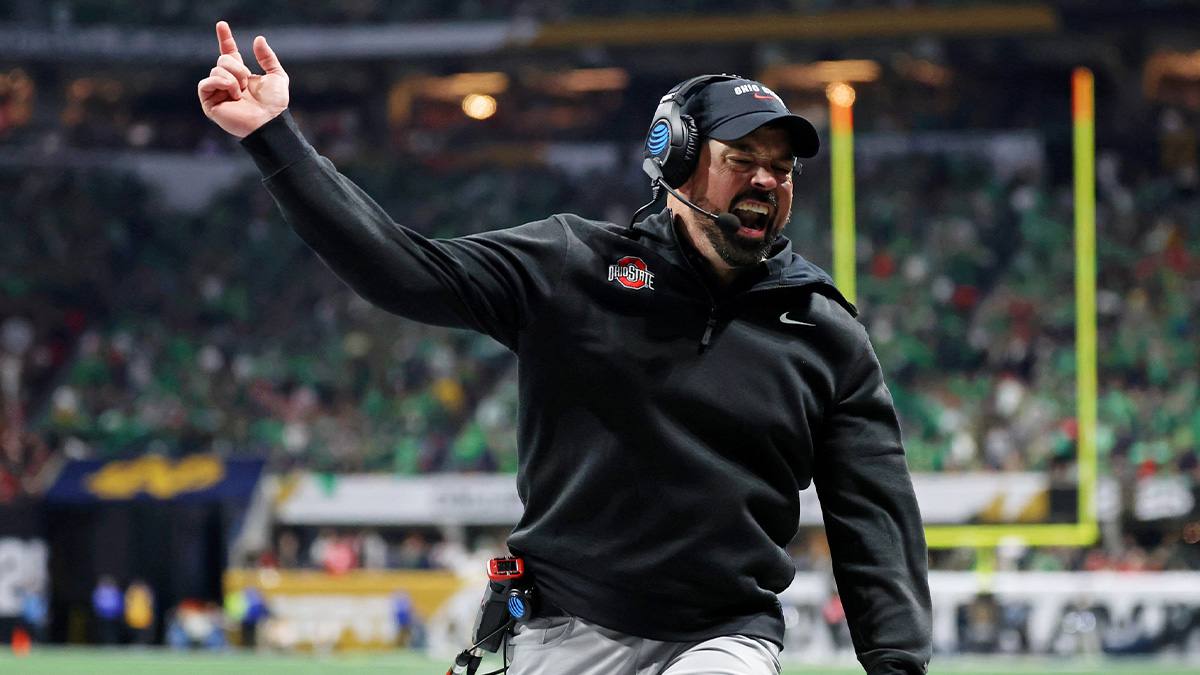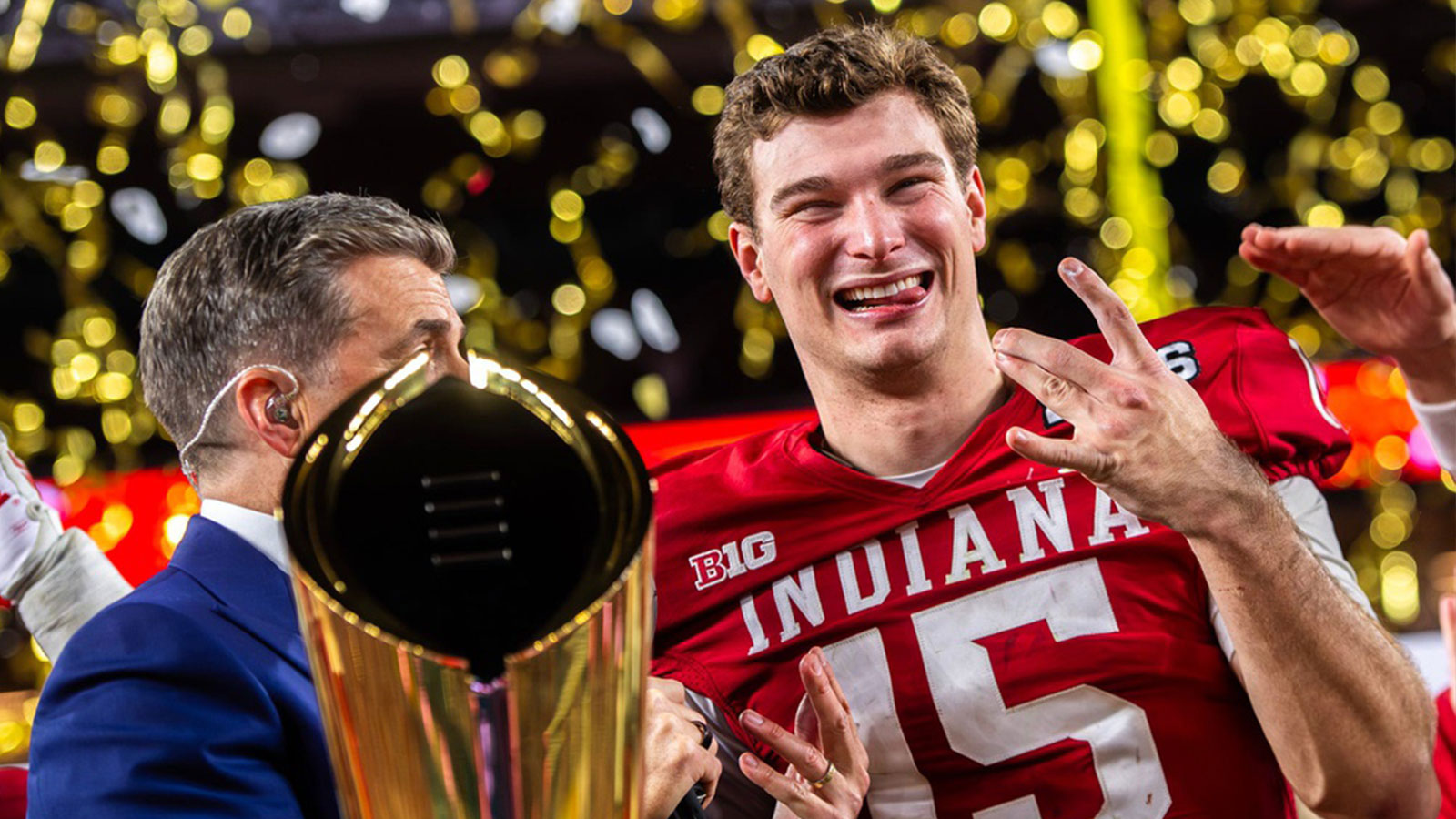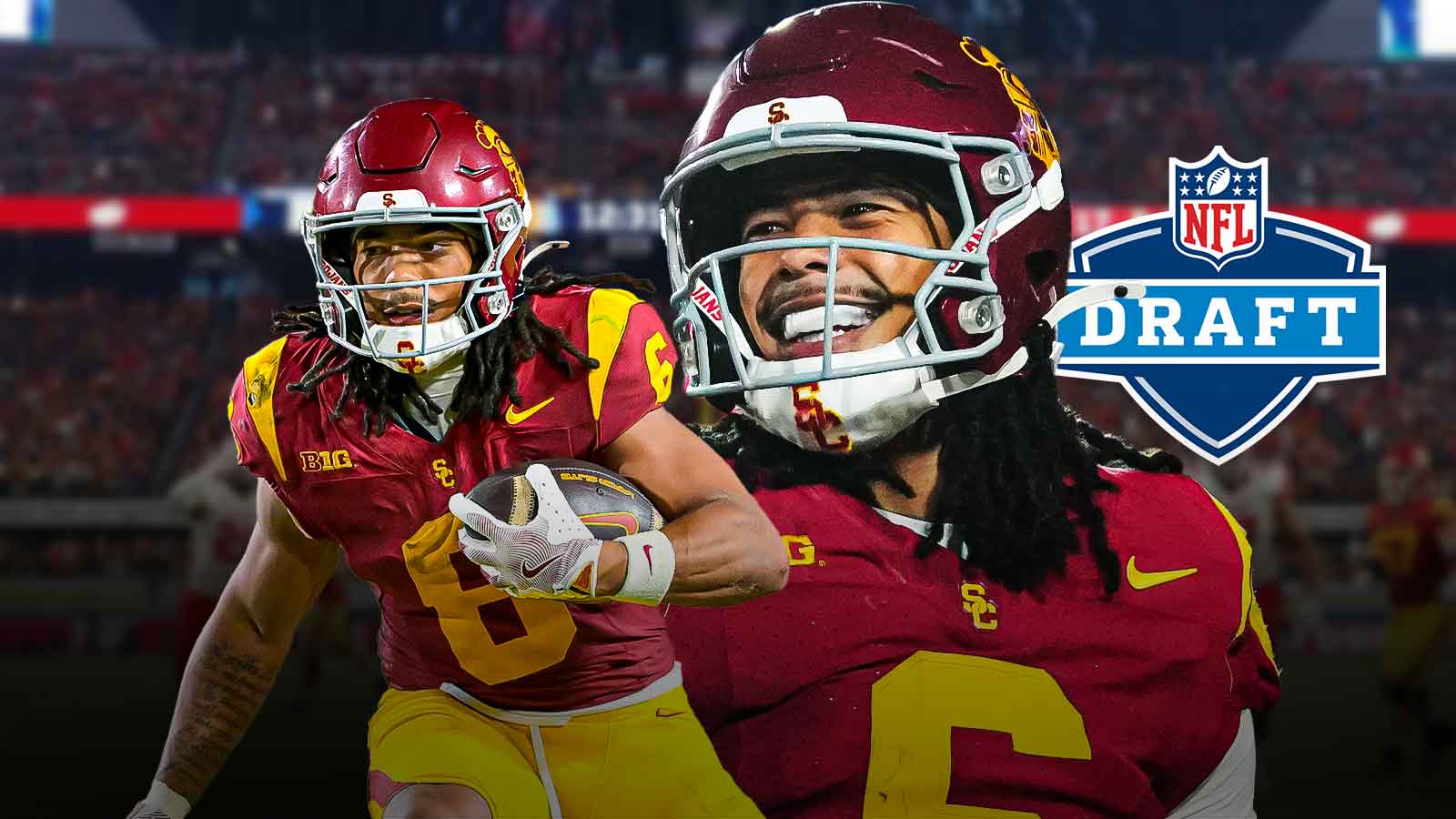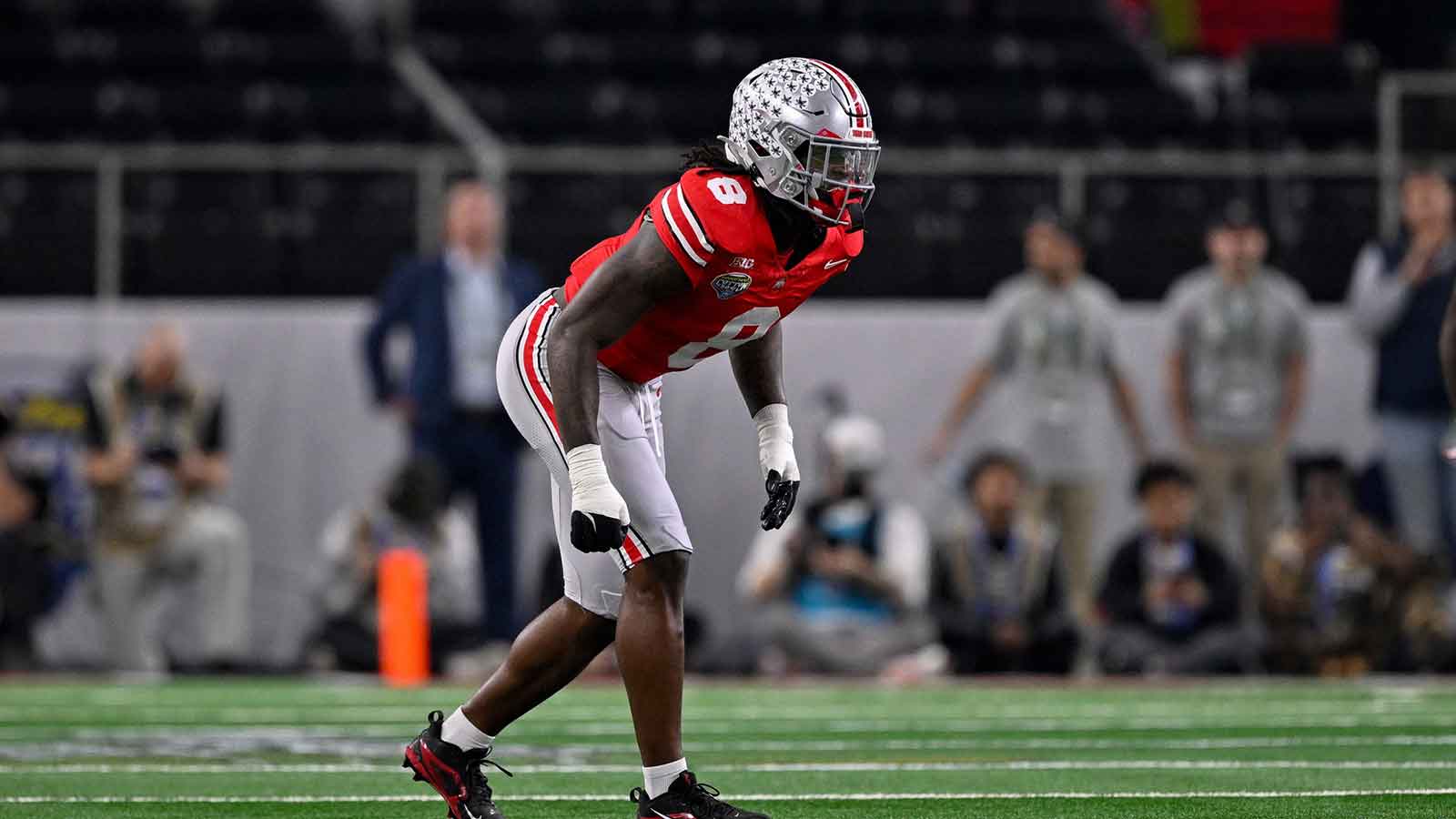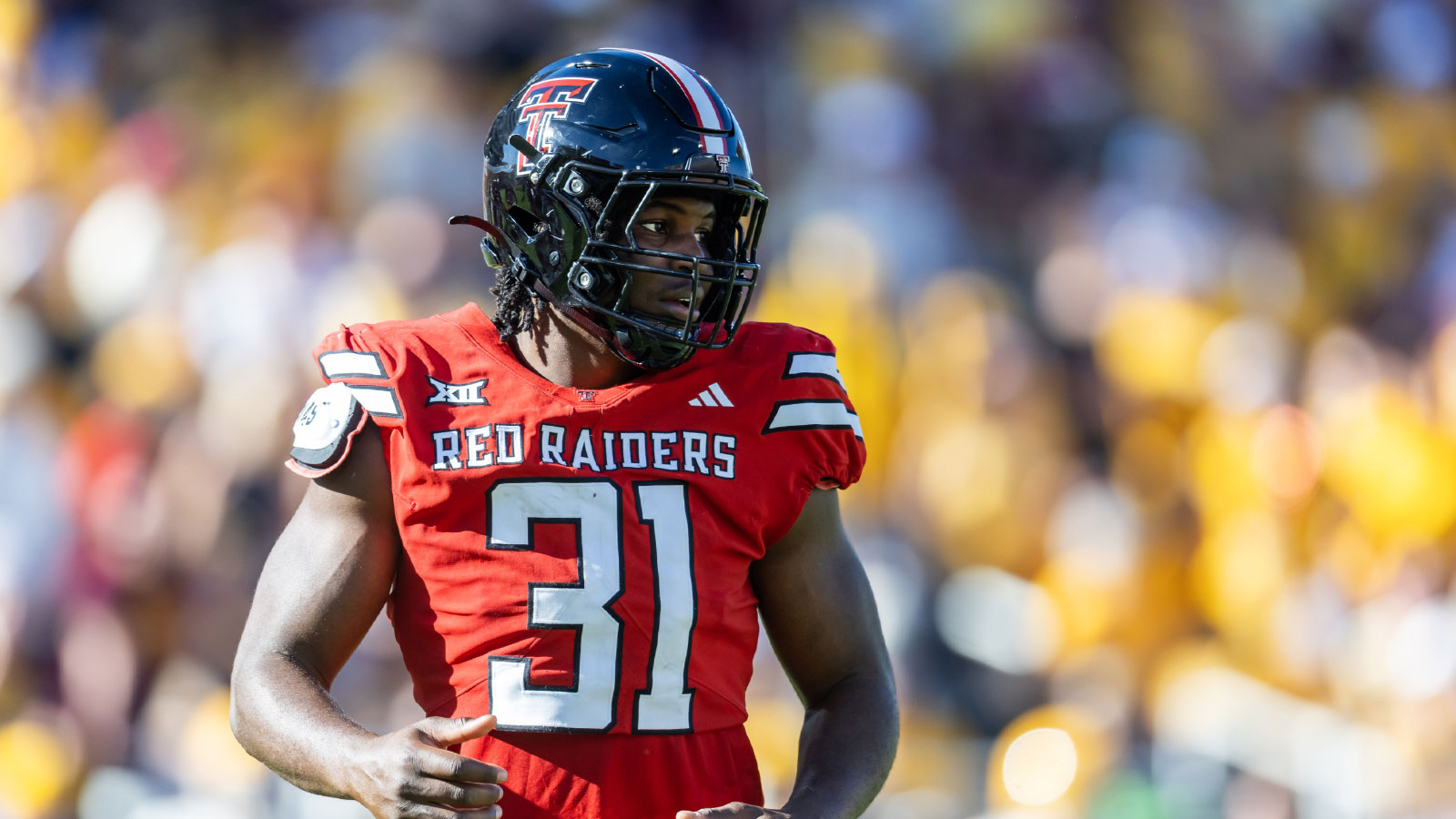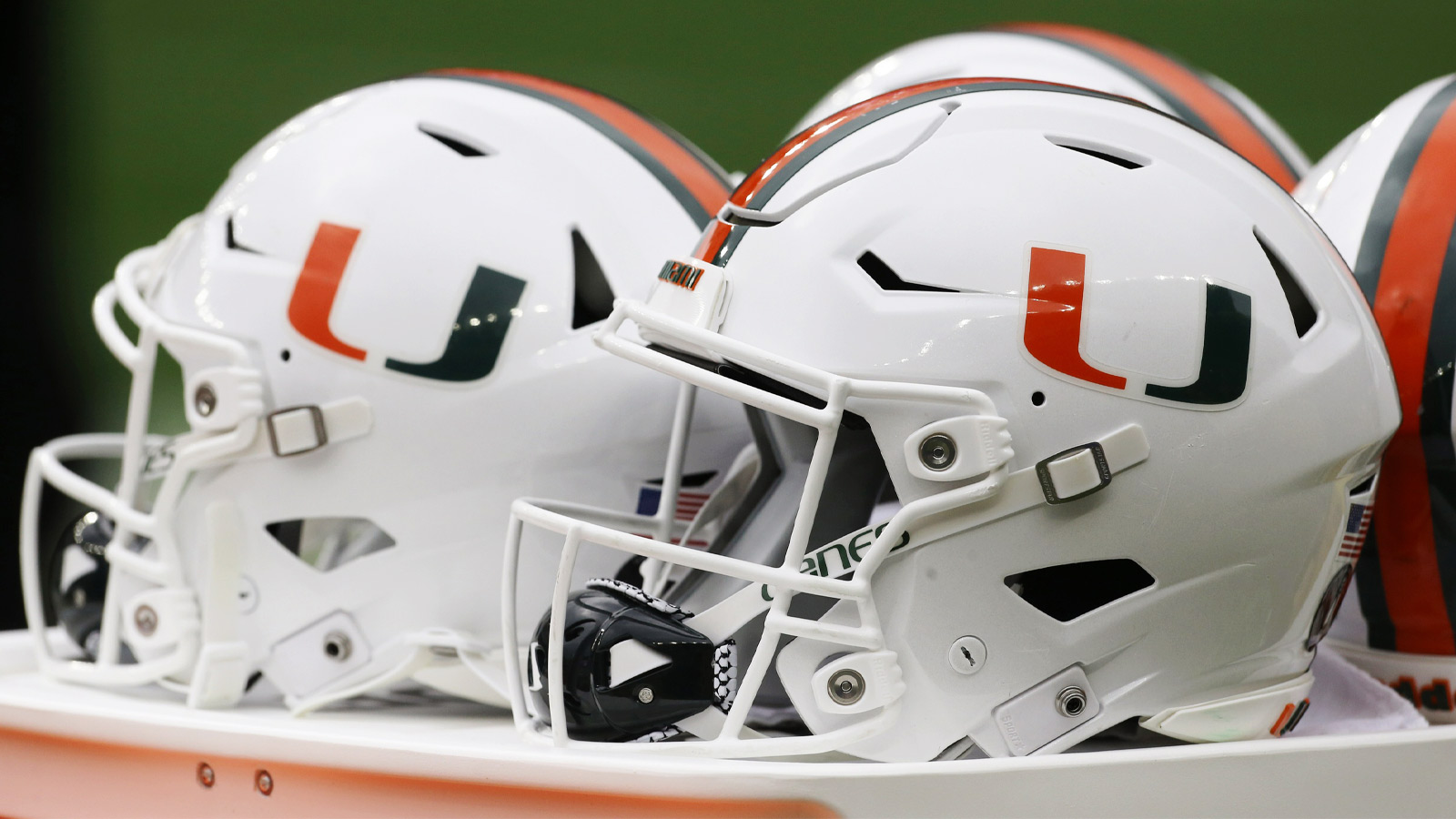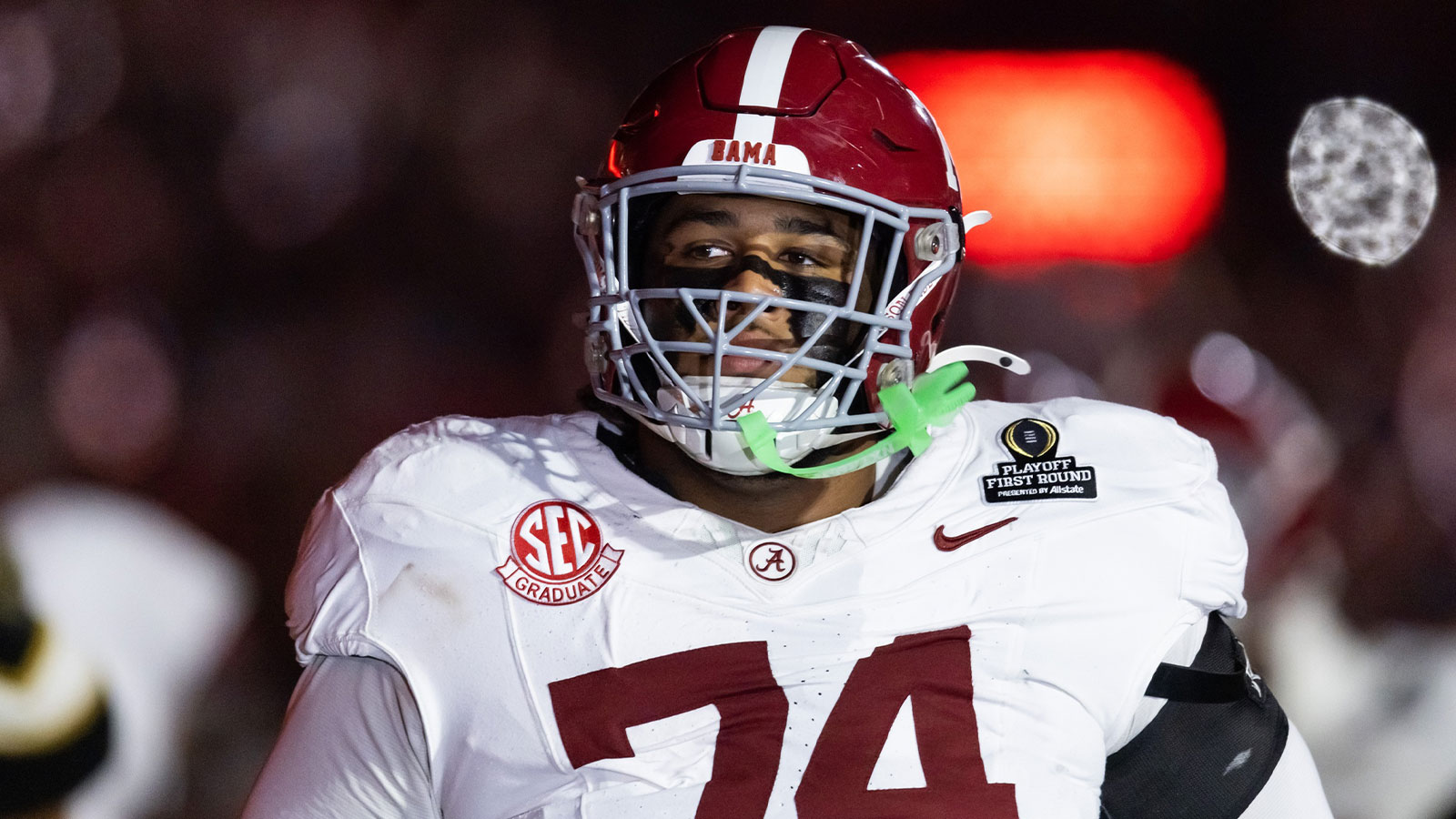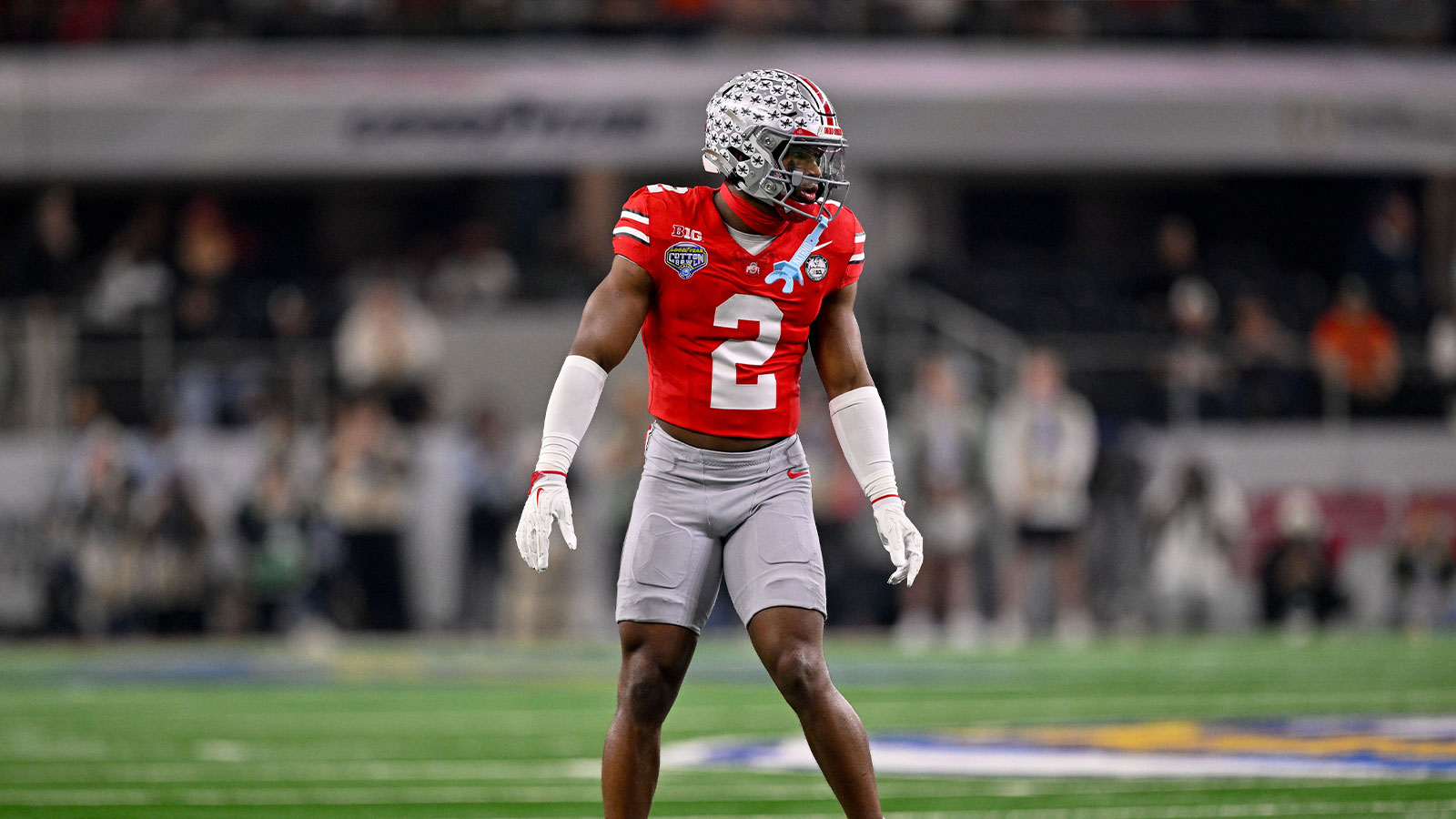Ohio State is basking in the glow of the national championship that the Buckeyes won Monday night by defeating Notre Dame by a 34-23 margin. The victory has been gratifying to the team, its supporters along with Ryan Day and his coaching staff. Ohio State overcame losses to Oregon and Michigan in the regular season to win four consecutive postseason games to earn the title.
But that championship is in the record book and while Day may feel proud that he has won a title as the leader of the program, there's no time for resting on laurels. College football teams are preparing for the 2025 season by adding players through the transfer portal and through the recruitment of high school players.
Ohio State is certainly attractive for top players, but their players are also capable of leaving for other programs that may offer high-playing NIL deals. Rumors persist that superstar wideout Jeremiah Smith has been offered $4.5 million for the upcoming season.
Day was a guest on Dan Patrick's program Friday and spoke about the issues that all programs are facing in the NIL era and a player's ability to make moves based on financial offers that are made.
Potential NIL payments make it difficult for Ohio State and other top programs to keep stars

Day addressed the issue that it seems too easy for offers to be made to key players and that rules of enforcement can be circumvented.
“I think one of the big issues we have across the board in college football right now is enforcement,” Day said. “You know some of the stories of some of the things that have gone on you know within the last couple years or even in the past, but enforcement is really strained right now. So until we start enforcing some of these rules, I mean people can just call a someone’s agents or someone's parents and offer them a certain amount of money and than it goes from there.”
The rules itself are not necessarily clear. Once a player enters his name in the transfer portal, schools have the ability to get in touch with that individual and begin the recruiting process. But how does a player let other schools know that he is interested in moving from his current team? A player may not want to enter the portal unless he knows that a profitable offer awaits.
If players are reaching out before they are in the portal or if teams are contacting players while they are in the middle of a season, those are the type of apparent moves that Day is most concerned about.

